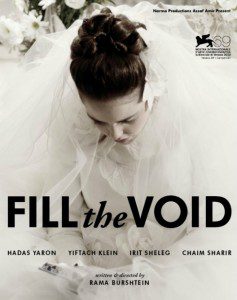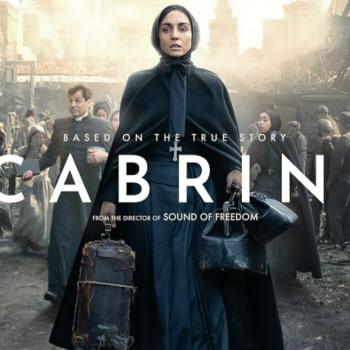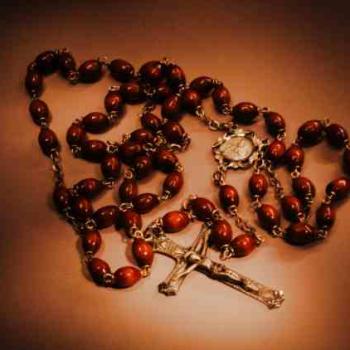An Orthodox Hassidic Jewish family in Tel Aviv awaits the birth of the middle daughter Esther’s (Renana Raz) first child. When she goes into labor suddenly and dies giving birth, the family is distraught. Things grow tense when Esther’s husband Yochay (Yiftach Klein) announces he is moving to Belgium to marry again and Esther’s mother begins to pressure her youngest daughter, Shira (Haddas Yaron) to marry Yochay.
But Shira is only 18, ten years younger than Yochay, and she wants to marry a young man nearer her age, her soul mate. She cares for the baby when she is not helping at a local pre-school, and Yochay notices how good she is with him. Shira’s eldest sister, Freida (Hila Feldman), is still unmarried and she has her eye on Yochay. Just when Shira is willing to entertain the idea of marrying Yochay, Freida says that Ester’s dying wish was for her to marry Yochay, not Shira.
The matchmaker and the rabbi get involved and this complicates matters even more. Shira searches her heart and entertains various young men for tea who are looking for a wife. Only one seems possible, and then Yochay proposes.
I liked this Jane Austen-esque love story set in a Jewish family very much because this is a culture I know so little about. When you hear about matchmakers and arranged marriages you wonder if the woman is free to marry whom she wishes; “Fill the Void” shows that even within what non-Jewish folk consider the confines of her Orthodox Jewish life, Shira is a person in possession of her womanhood, and she is free.
She also plays the accordion, which adds a sometimes melancholy sound track to the film, and she works at a pre-school.
At one point Shira tells Yochay, “What was it like to marry the most beautiful woman in the world?” for her sister Esther was indeed beautiful. Perhaps Shira wonders how she can possibly compare but we sense her strength as a woman is growing.
Her Aunt Hanna (Razia Israeli) never married and she has no arms but I am not sure what this means, other than it is better to have a husband than to have to depend on relatives for everything for the rest of your life. But I am not sure what the filmmaker intended.
There are some absolutely lovely touches in the film. As writer/director Rama Burshtein noted at a press day, the set is small and Shira’s home is divided into just a few connected rooms, like the chambers of a heart. She said that the Hassidic Orthodox community can seem claustrophobic and emotionally cloistered and she wanted to tell a story from this perspective because she wants to give the community a voice, to say something from within the community.
Burshtein explained that she loved reading Jane Austen as a girl before she became Orthodox as a young woman of about 25. “The relationship between a man and a woman intrigues me. Passion means wanting something you don’t have and for the story to work there has to be a balance between ‘wanting’ and ‘restraining’ in the characters. If there was a love scene in the film, that passion would die.”
If you get to see the film, look for the scene where the family meets with the rabbi. His assistant keeps interrupting. The rabbi’s response to the one who keeps knocking, is exquisite.
Love comes in many forms in life and “Fill the Void” is a warm and gentle love story with a light touch of humor.
In Hebrew with English subtitles.













